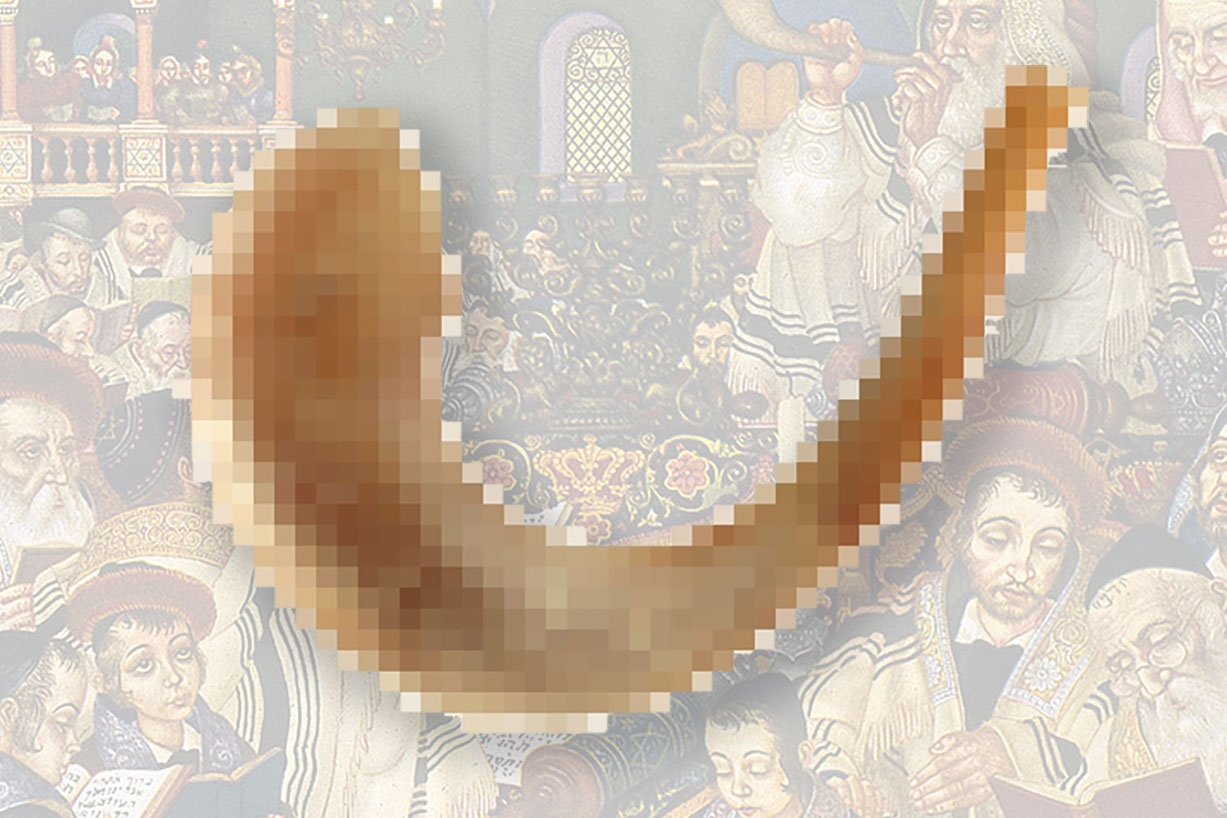By Wendie Bernstein Lash, Lex Rofeberg and Estee Solomon Gray
CHICAGO (JTA) — Too often, Rosh Hashanah resembles Kramer from “Seinfeld.”
Barging onto the scene in a haste, it takes us aback. Its entry neither upsets nor disappoints us. But it comes with little warning, out of nowhere.
The Jewish New Year isn’t experienced most effectively as a rude, Kramer-like entrance. It works far better as the culmination of a monthlong crescendo. A rolling-out of one year, a rolling-in of the next, and an annual window (wrinkle?) in time marked by zooming in, zooming out, looking forward, looking back and gathering ourselves upon our own two feet.
Luckily, the Jewish calendar provides exactly that slow, steady climb. It’s called Elul, the month directly preceding Rosh Hashanah. Traditionally it has served as a Jewish “on-ramp” (or maybe an escalator) so that we can ascend, gradually, toward the High Holidays, 10 intense days of course correction and (hopefully) forgiveness. You’ll find it on the last page of every standard Jewish calendar — our version of December.
But none of us knew anything about Elul’s role as the on-ramp to the High Holidays until adulthood. When we talk to many Jewish friends today, they generally haven’t heard of it.
Why might this be?
For one, Elul hasn’t been particularly well-defined. Sure, there are a few core practices: hearing the shofar blast each day, and reciting Psalm 27 (“The Lord is my light and my help”). And in Sephardi communities, Selichot (penitential poems) are recited during the month (Ashkenazi Jews typically only say them the last few days before Rosh Hashanah).
But the reality is this: The overwhelming majority of American Jews do not attend synagogue every day to hear a shofar. While they could crack open Psalm 27 on their own (and we’d encourage people to wrestle with it), it may or may not speak to them.
We need to reclaim and redefine Elul today. We need to experiment, and collaborate, to determine what this “on-ramp month” could look like and how it could speak to us in a deeper way. Because without an on-ramp, the High Holidays are – if you ask us – a little too high.
We don’t want the shofar’s blast to feel like one of Kramer’s abrupt entrances. We want to be ready.
Elul serves a vital function as a period of inner exploration and preparation. But when we look around, it is only playing that crucial role for a very small group of people.
What needs to change for that small group of people to grow? How could we reshape Elul so that it speaks to more hearts and minds, and achieves that important purpose of preparing us for a new year?
We asked ourselves those questions a few months ago. We didn’t find any magical elixirs or silver bullets, but we did decide to try out an experiment. Might it be possible — for purposes of individual meaning and communal connection — for Elul to manifest in the digital world? Might this be a way to help channel the meaning and purpose of Elul into the lives of Jews who aren’t connecting to traditional liturgies and spiritual practices?
We set out to find the answer to those questions by claiming Elul as a “holimonth” and launching a project called Elul Unbound.
Elul Unbound is a daily form of Elul observance that takes place primarily through digital channels. Each day, participants receive an email containing a podcast, a video, a poem, a joke – something creative – along with questions for reflection or a call to action. The content of each email is chosen to (hopefully) help participants on a monthlong journey of awakening, so that each is more ready for the reflection that will come on Rosh Hashanah and Yom Kippur.
We were hoping, ambitiously, that we could recruit 100 participants. Turns out we were mistaken about how much interest there would be.
By the 1st of Elul, 400 people had signed up. Hundreds more have joined since the month began. Dozens have gathered via video chat, on a weekly basis, to share their experiences of Elul across time zones and denominational divides. Dozens more have taken advantage of our one-on-one spiritual guidance sessions.
Initiatives like Jewels of Elul, now in its second decade, first set the tone for what a meaningful, digital Elul could look like. Newer projects like The Elul Journey have arisen as well. My Jewish Learning offers a series of emails with holiday rituals, customs, vocabulary and recipes.
In other words, this isn’t just about our project. It’s not about any individual initiative. This is about a trend in contemporary Judaism with huge ramifications. Without realizing it, more and more Jews have embraced Elul in ways that are transformational. An often overlooked month, which many of us hadn’t heard of until recently, has new life. Slowly but surely it’s migrating into and awakening our hearts and minds.
If you’re looking to join that awakening, we have good news. It’s not at all challenging to do so.
All you need is an internet connection.
(Wendie Bernstein Lash, M.S., is a spiritual entrepreneur blending mentoring, meditation, chant, ritual and her love of Judaism to support Jewish seekers around the world. Lex Rofeberg is a co-host of the Judaism Unbound podcast and the strategic initiatives coordinator for the Institute for the Next Jewish Future. Estee Solomon Gray is a senior fellow at Judaism Unbound/Institute for the Next Jewish Future.)
The views and opinions expressed in this article are those of the author and do not necessarily reflect the views of JTA or its parent company, 70 Faces Media.





